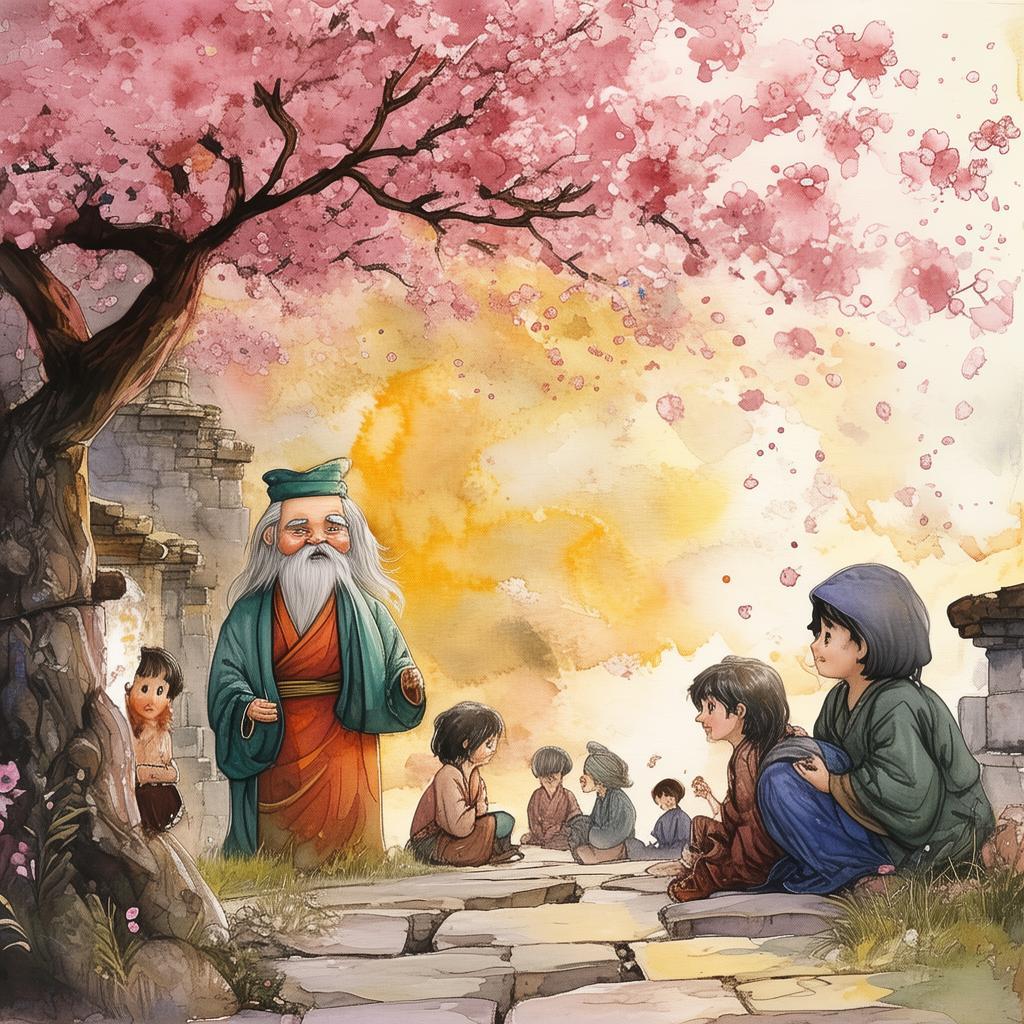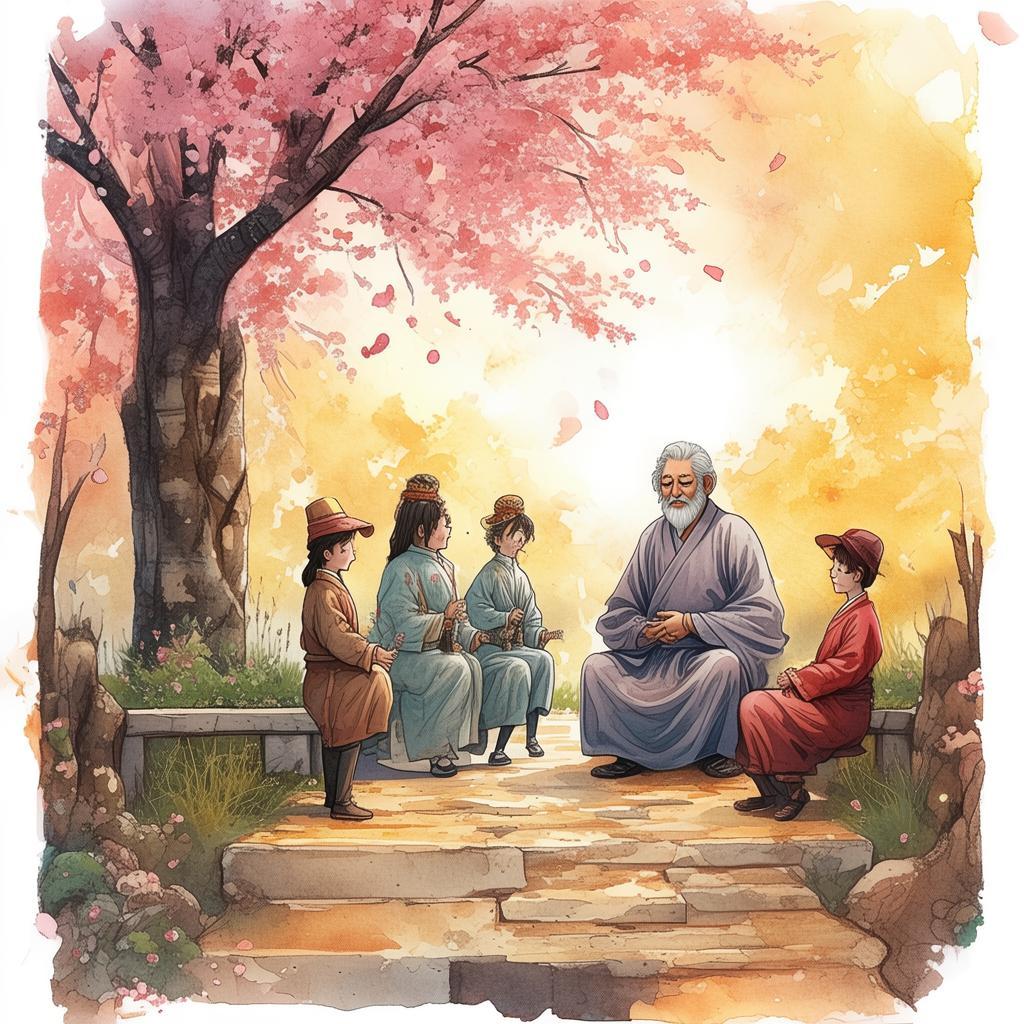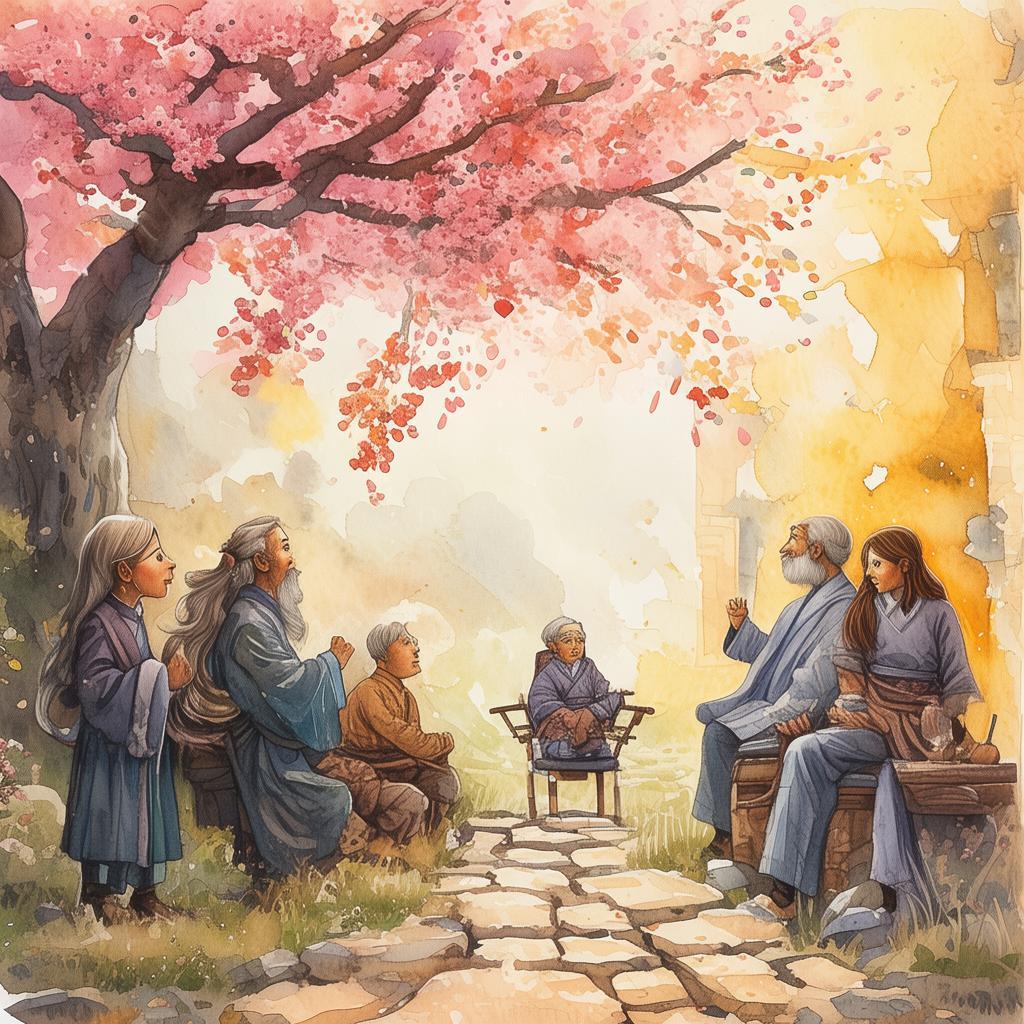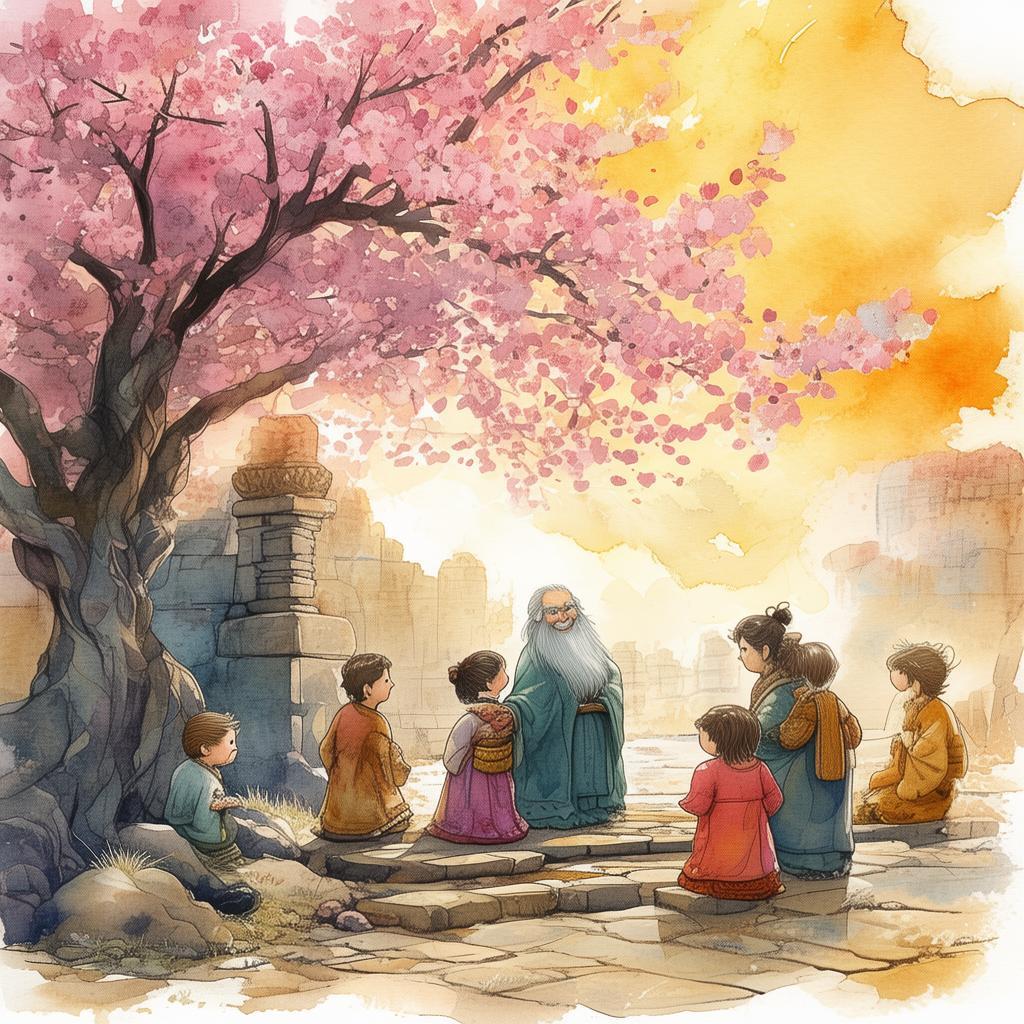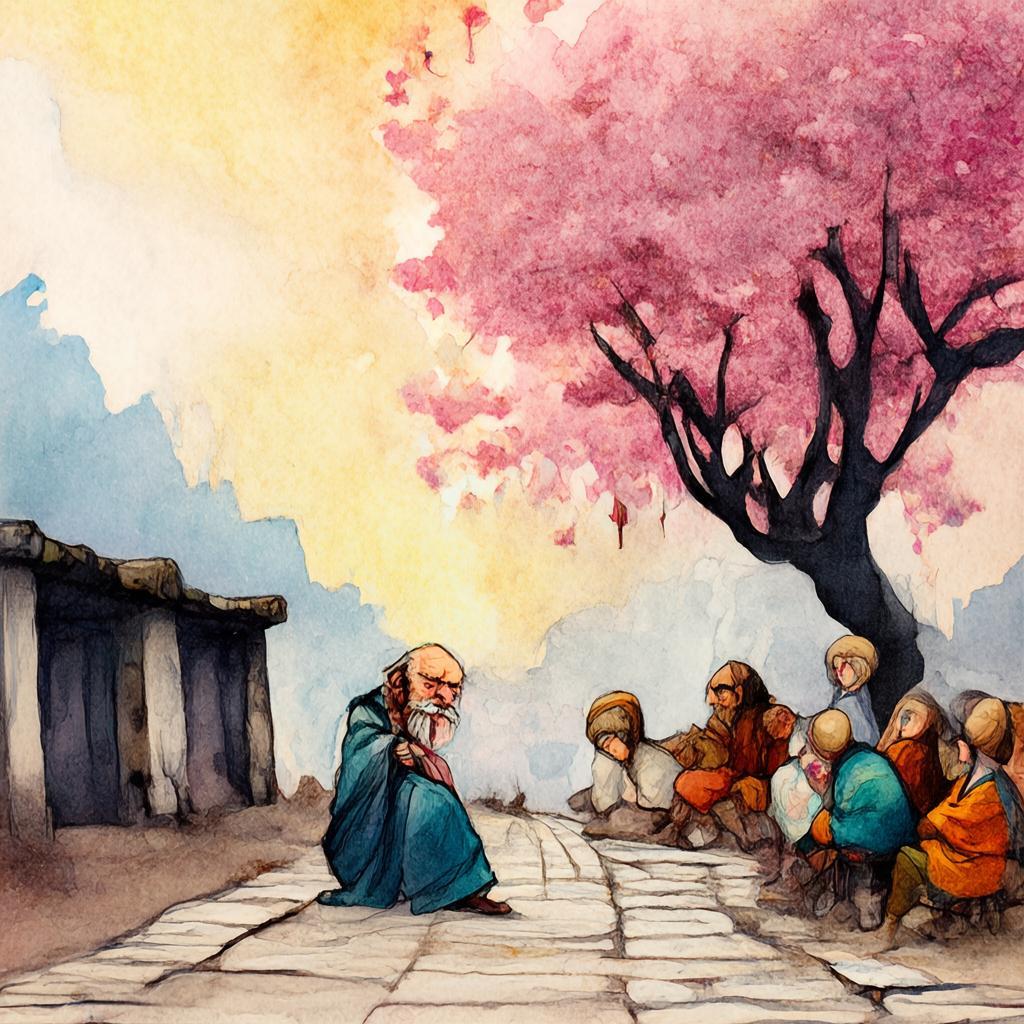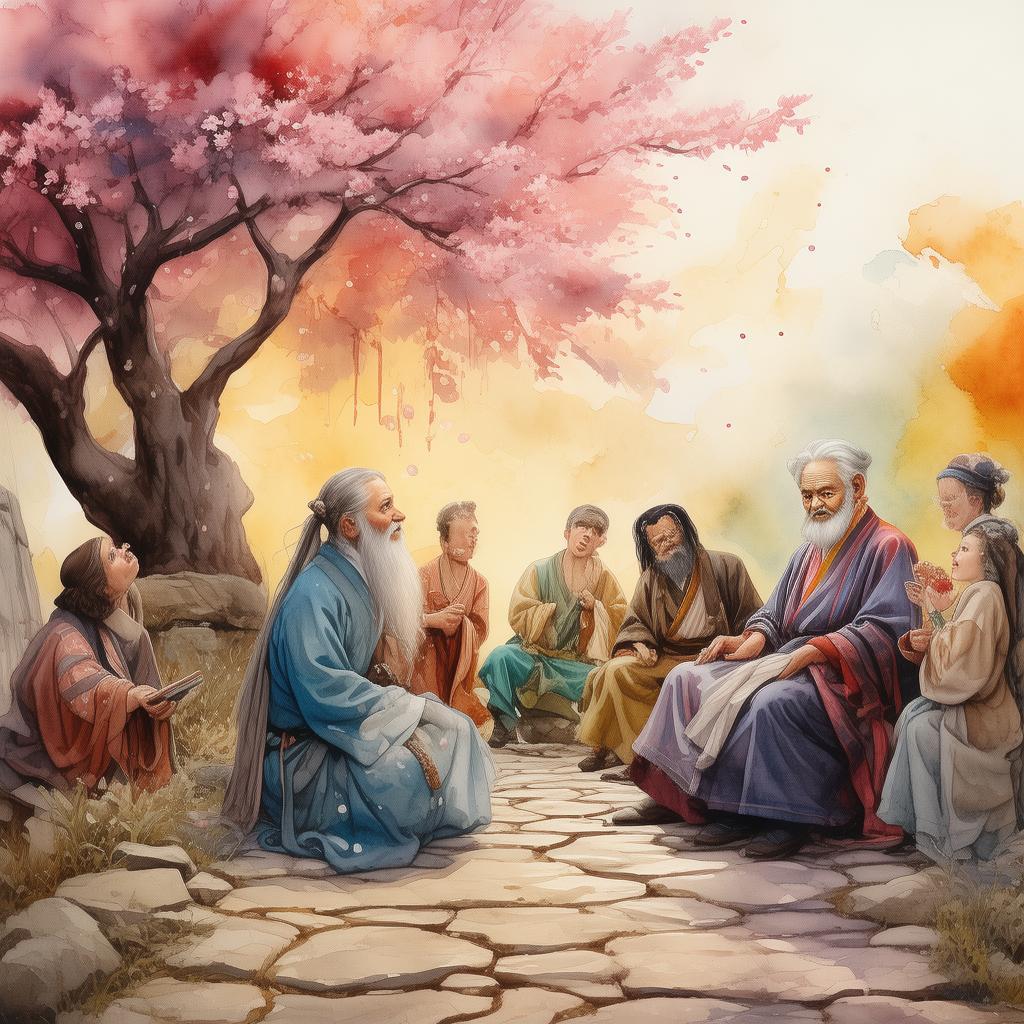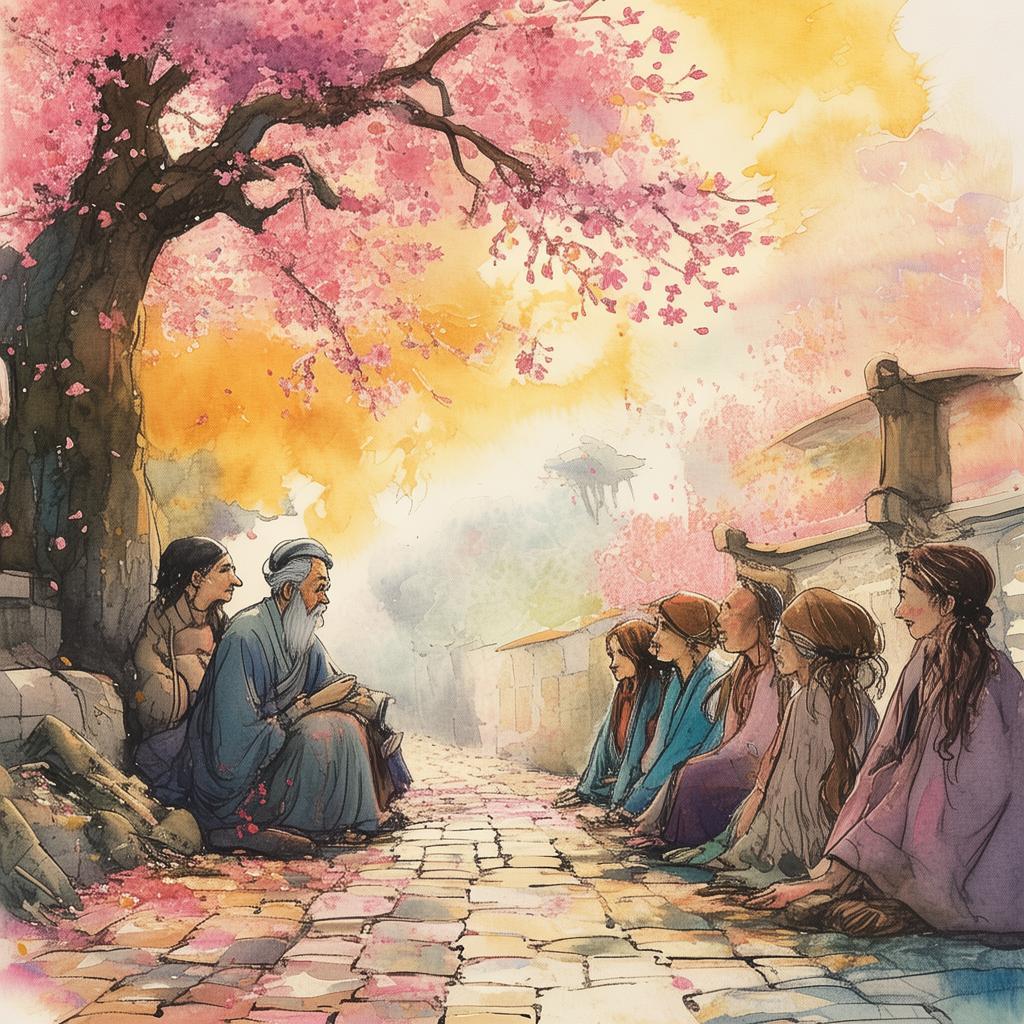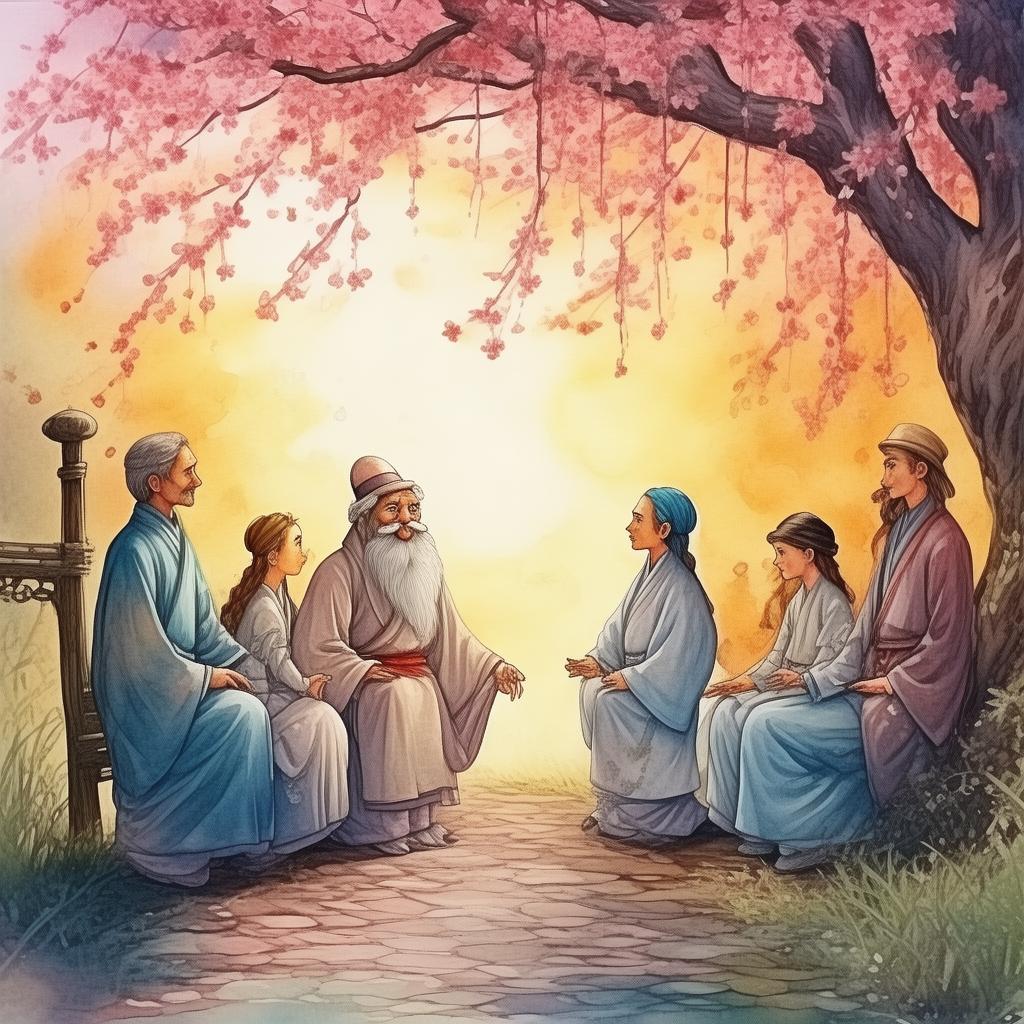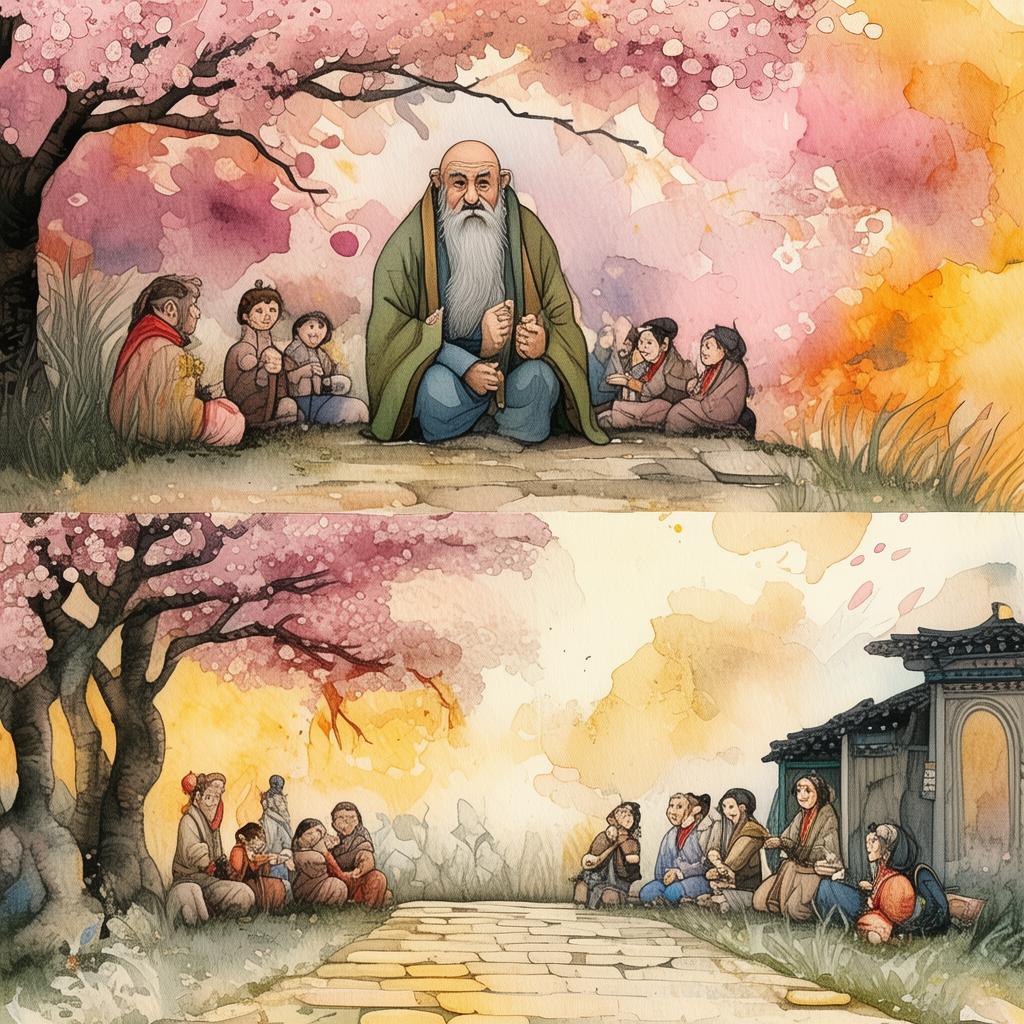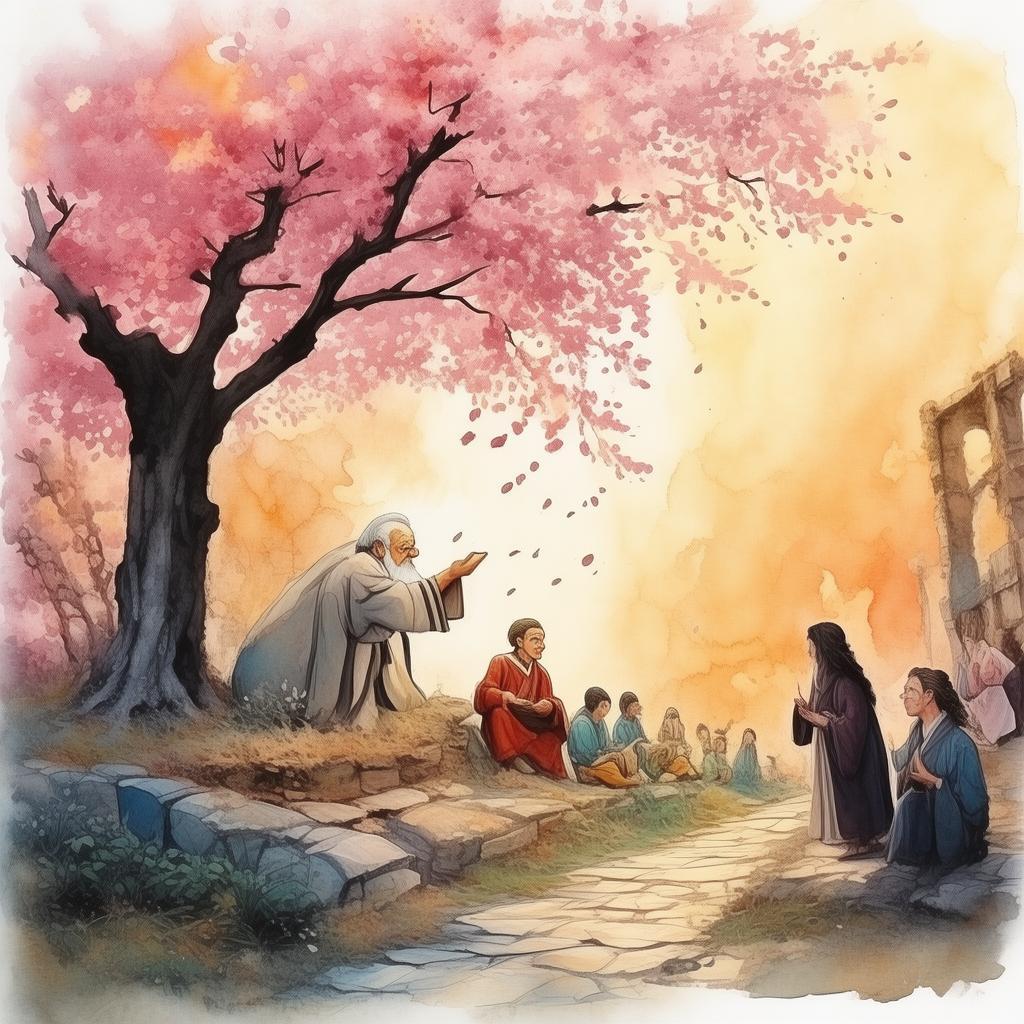Empire's Echo: The Rise and Fall of a Language Dynasty
In the heart of the ancient Silk Road, where caravans of spices and silks crisscrossed, there lay a kingdom whose power was not of swords or gold, but of words. This was the realm of the Dragon Dynasty, a land where the spoken word was currency, and the tongue was a weapon. The dynasty's language, known as Ling, was a marvel of poetic precision and expressive depth, a language so rich that it could convey the most complex emotions and ideas with a mere whisper.
The story begins with the young heir to the Dragon Dynasty, Li, who was destined to be the next master of Ling. His father, the Great Emperor, was a man whose love for the language was as deep as his love for the empire. He spent his days and nights crafting new verses, expanding the lexicon, and teaching his son the intricacies of his people's tongue.
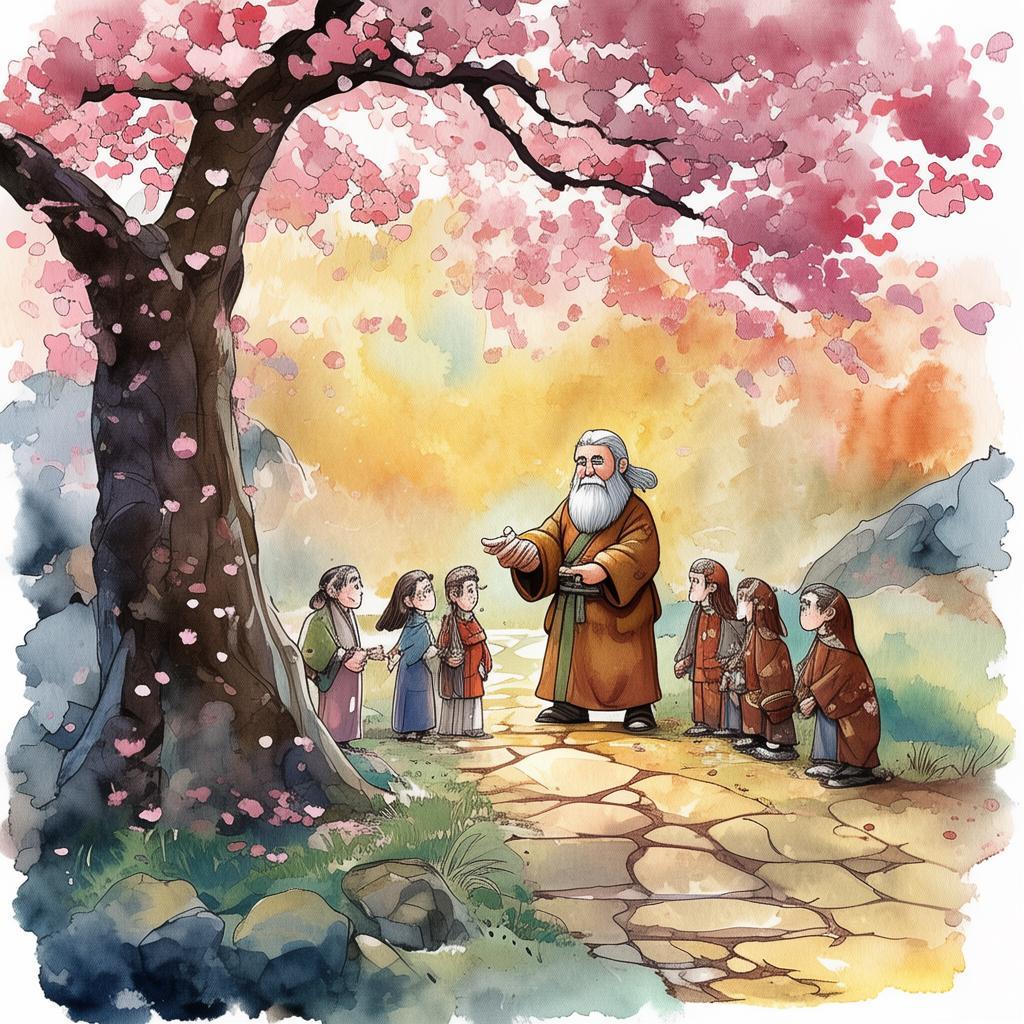
As Li grew, so did his father's empire. The Dragon Dynasty expanded its borders, absorbing smaller kingdoms and cities with the promise of Ling's power. The empire thrived, and so did its language, becoming the lingua franca of the Silk Road and beyond.
However, with power comes corruption. The elite of the empire, the scholars and poets, began to twist the language to suit their own ends. They used Ling to manipulate, to deceive, and to divide. The once unifying force of the empire became a source of discord and dissent.
Li, however, was not like his father. He saw the corruption for what it was and was determined to restore the purity of Ling. He embarked on a journey to uncover the truth about the origins of his language, hoping to find a way to cleanse it of its dark influence.
Li's quest led him to the remote mountains, where the ancient scribes and oracles had kept the secrets of Ling. There, he discovered that the language was not just a tool of the empire but a living entity, with a soul and a history. The language had been corrupted, not by the words themselves, but by the hearts of those who spoke them.
Armed with this knowledge, Li returned to the capital, determined to purify Ling. He faced the scholars and poets, challenging them to a contest of words. The contest was fierce, filled with poetic jousts and intellectual sparring. Li, with his pure heart and deep understanding of the language, outmatched his opponents, revealing the true power of Ling.
The contest was a turning point for the empire. The scholars and poets were humbled, and the language was cleansed. The empire's power was restored, not by force, but by the language that united its people once more.
Li's legacy was a testament to the power of words. His story became a part of the oral tradition of the Dragon Dynasty, a reminder that the tongue of the world is not just a tool of the powerful, but a force for good that can shape empires and define destinies.
The empire continued to thrive for generations, and the language of Ling remained a marvel of the world. But it was not the language that defined the dynasty, but the courage and wisdom of Li, the young heir who had the foresight to see the true power of the tongue of the world.
✨ Original Statement ✨
All articles published on this website (including but not limited to text, images, videos, and other content) are original or authorized for reposting and are protected by relevant laws. Without the explicit written permission of this website, no individual or organization may copy, modify, repost, or use the content for commercial purposes.
If you need to quote or cooperate, please contact this site for authorization. We reserve the right to pursue legal responsibility for any unauthorized use.
Hereby declared.
